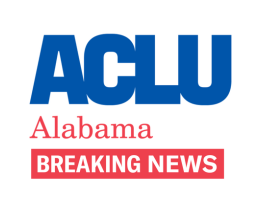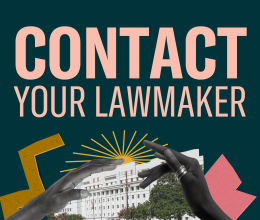
In July of 2020, the American Civil Liberties Union and ACLU of Alabama joined a lawsuit brought by the NAACP Legal Defense and Educational Fund, Southern Poverty Law Center, and Alabama Disabilities Advocacy Program seeking to ensure no eligible Alabama voter is denied the right to vote in the 2020 elections due to the COVID-19 pandemic.
The case was filed on behalf of several Alabama voters who required a safe alternative to voting in-person at a polling place during the COVID-19 pandemic because their health conditions make them higher risk for severe illness and death from COVID-19. The suit was also brought on behalf of advocacy and membership organizations People First of Alabama, Greater Birmingham Ministries, the Alabama State Conference of the NAACP, and Black Voters Matter Capacity Building Institute.
In 2020, Alabama had the fourth-highest per capita rate of COVID-19 cases in the country, and the virus disproportionately infected and took the lives of older voters, Black voters, and voters with disabilities.
On September 30, 2020, a federal court ruled that Alabama voters would not need a witness or notary to vote by mail if they have an underlying medical condition and provide a statement. Additionally, the decision stipulated that voters 65 and older with an underlying medical condition would not need an ID so long as they provide other identifying information such as their driver’s license number or last four digits of their Social Security number. Finally, the decision ordered the state to allow counties to implement curbside voting, concluding that the ban on curbside voting violated the Americans with Disabilities Act by requiring voters with disabilities, who have a higher risk of serious complications or death from the virus, to cast their ballots in person and therefore increase their exposure to the virus.
The court’s ruling recognized that Alabama voters, like plaintiffs in this case, are at higher risk for severe complications from COVID-19 and that forcing them to comply with the challenged provisions would needlessly endanger their lives.
However, on October 13, 2020, the 11th Circuit Court of Appeals reversed the lower court's ruling and reinstated the witness and photo ID requirements, while maintaining the lift on the curbside voting ban. The State of Alabama went to the Supreme Court, who, in a one-paragraph order, granted the request by Alabama election officials to allow them to ban curbside voting.
In her dissent, Supreme Court Justice Sotomayor noted that the Centers for Disease Control and Prevention has recommended curbside voting as one way to fight the spread of COVID-19. She concluded her dissent with a quote from a Black Alabamian with asthma and Parkinson's disease, who told the district court: "“[S]o many of my [ancestors] even died to vote. And while I don’t mind dying to vote, I think we’re past that – we’re past that time.”

